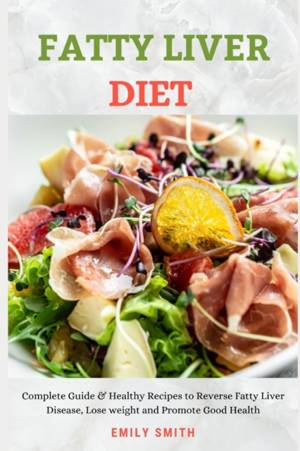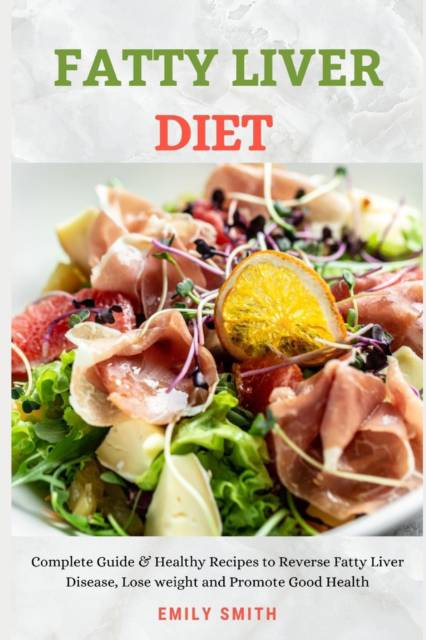
- Afhalen na 1 uur in een winkel met voorraad
- Gratis thuislevering in België vanaf € 30
- Ruim aanbod met 7 miljoen producten
- Afhalen na 1 uur in een winkel met voorraad
- Gratis thuislevering in België vanaf € 30
- Ruim aanbod met 7 miljoen producten
Zoeken
Fatty Liver Diet
Complete Guide & Healthy Recipes to Reverse Fatty Liver Disease, Lose weight and Promote Good Health
Emily Smith
Paperback | Engels
€ 9,95
+ 19 punten
Omschrijving
There are two major types of fatty liver disease - alcohol-induced and nonalcoholic fatty liver disease. Fatty liver disease affects nearly one-third of American adults and is one of the leading contributors to liver failure. Nonalcoholic fatty liver disease is most commonly diagnosed in those who are obese or sedentary and those who eat a highly processed diet.
A diet for fatty liver disease should include a wide variety of foods.
Reducing calorie intake and eating high fiber, natural foods is a good starting point. Eating foods that contain complex carbohydrates, fiber, and protein can provide sustained energy and promote satiety.
Foods that reduce inflammation or help the body repair its cells are equally important.
One of the main ways to treat fatty liver disease, regardless of type, is with diet. As the name suggests, fatty liver disease means you have too much fat in your liver. In a healthy body, the liver helps to remove toxins and produces bile, the digestive protein. Fatty liver disease damages the liver and prevents it from working as well as it should.
In general, the diet for fatty liver disease includes:
A diet for fatty liver disease should include a wide variety of foods.
Reducing calorie intake and eating high fiber, natural foods is a good starting point. Eating foods that contain complex carbohydrates, fiber, and protein can provide sustained energy and promote satiety.
Foods that reduce inflammation or help the body repair its cells are equally important.
One of the main ways to treat fatty liver disease, regardless of type, is with diet. As the name suggests, fatty liver disease means you have too much fat in your liver. In a healthy body, the liver helps to remove toxins and produces bile, the digestive protein. Fatty liver disease damages the liver and prevents it from working as well as it should.
In general, the diet for fatty liver disease includes:
- lots of fruits and vegetables
- high-fiber plants like legumes and whole grains
- very little added sugar, salt, trans fat, refined carbohydrates, and saturated fat
- no alcohol
Specificaties
Betrokkenen
- Auteur(s):
- Uitgeverij:
Inhoud
- Aantal bladzijden:
- 72
- Taal:
- Engels
Eigenschappen
- Productcode (EAN):
- 9798513845324
- Verschijningsdatum:
- 2/06/2021
- Uitvoering:
- Paperback
- Formaat:
- Trade paperback (VS)
- Afmetingen:
- 152 mm x 229 mm
- Gewicht:
- 108 g

Alleen bij Standaard Boekhandel
+ 19 punten op je klantenkaart van Standaard Boekhandel
Beoordelingen
We publiceren alleen reviews die voldoen aan de voorwaarden voor reviews. Bekijk onze voorwaarden voor reviews.











